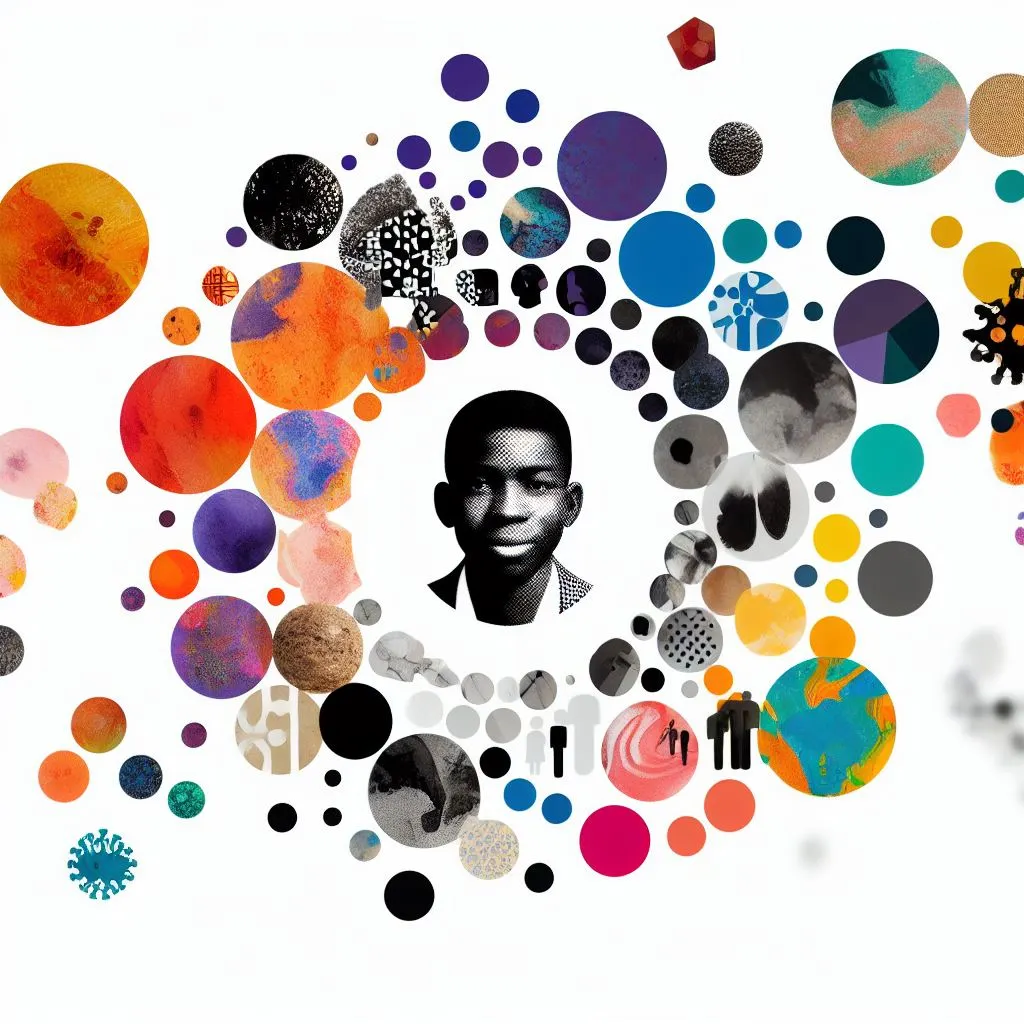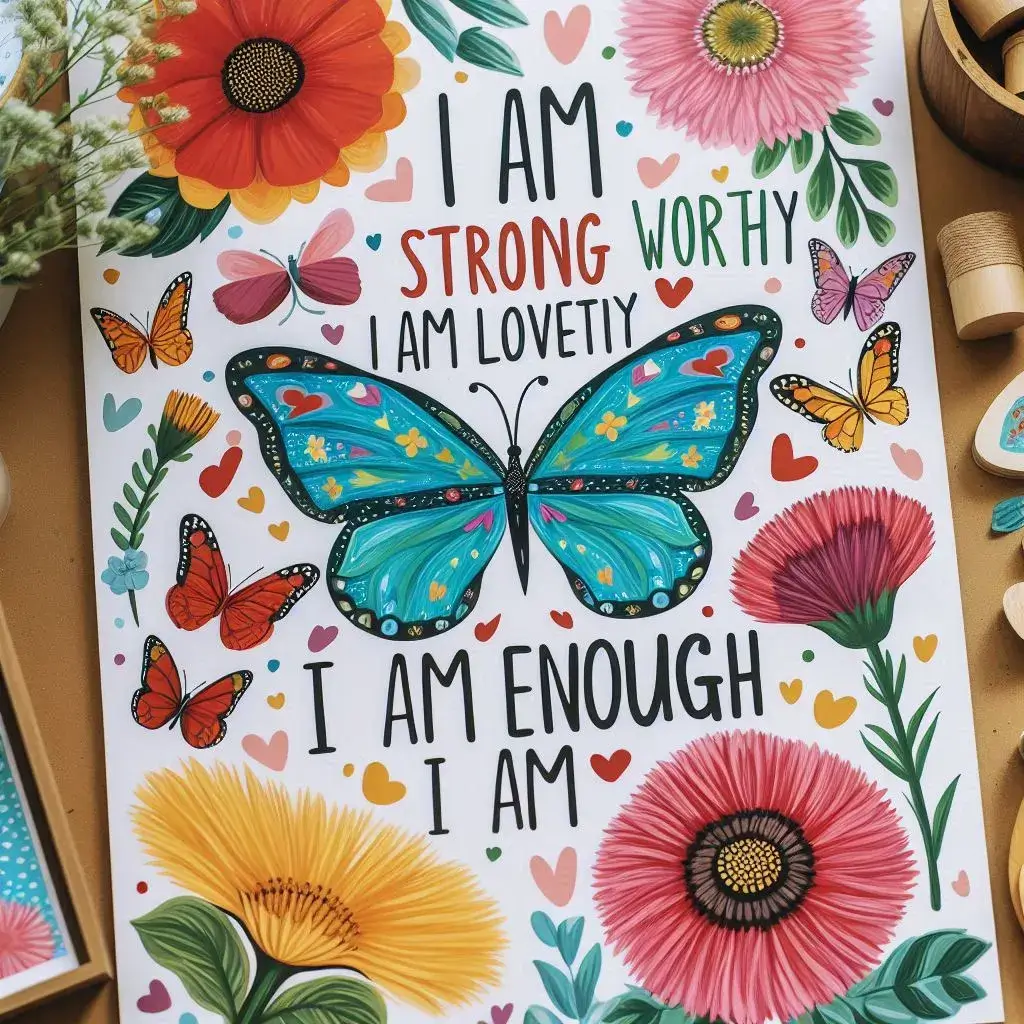Growing up as a black child in America, I was acutely aware from a young age that the color of my skin meant I stood out. It shaped how others saw me and how I saw myself. On the surface, skin color is simply pigmentation – but beneath, it carries deep societal meanings that become ingrained in one’s identity and sense of self-worth.
I remember playing with white friends as a kid, noticing the subtle but hurtful ways they’d sometimes treat me differently. Even at that age, I internalized the message that my black skin was somehow “other.”
It planted seeds of doubt in my mind – was I truly equal to them? As I got older, those slights accumulated into feelings of inadequacy. I struggled in school partly due to low self-esteem from believing the negative stereotypes society attached to blackness.
It wasn’t until college that I found my voice and started reclaiming my identity on my own terms. I immersed myself in black literature, history and culture for the first time. I came to understand the pride in being part of the African diaspora, and in overcoming the legacy of oppression black people have faced worldwide. Rejecting the harmful messages of white supremacy gave me freedom. I realized that the color of my skin is not a weakness – it is a badge of strength, resilience and beauty.
Today, I recognize that while skin color itself is superficial, it acts as a prism through which we experience the world. It shapes opportunities, assumptions, and how we see ourselves.
But it does not define our character or limit our potential. Our identities are complex tapestries woven from many threads – and each person has power to choose which parts they want to emphasize or reject. By embracing all aspects of who I am, including my blackness, I have found self-acceptance and a sense of wholeness. My journey shows that overcoming racism starts from within, by refusing to internalize the prejudices of others or believe we are lesser for the color of our skin.
According to social psychologist Claude Steele, our identity includes not just what we think about ourselves but also what others think about our social group. As he wrote in his seminal work Whistling Vivaldi, stereotypes about our race or ethnicity can become a part of our identity whether we internalize them or not (Steele, 2010).
This is because we exist in a sociocultural context that confers meaning and value based on visible attributes like skin color. From an early age, we learn which racial groups hold higher status and are more positively regarded in our environment.
What is the relationship between skin color and self esteem?
- Lighter skin tones have historically been valued more in Western cultures, while darker skin has faced greater social stigma and discrimination. This cultural preference gets internalized and can negatively impact self-esteem.
- Facing racism and prejudice due to one’s skin color from a young age (e.g. through slights, stereotyping or unequal treatment) can make one question their own self-worth. Over time, this can chip away at self-esteem.
- Absorbing negative stereotypes associated with darker skin, such as assumptions about intelligence, beauty or character, is damaging because stereotype threat becomes self-fulfilling. Doubting oneself leads to poorer performance and outcomes.
- A lack of representation and role models with similar skin tones in media and positions of power/success makes it harder to see oneself or ones attributes as valued. This can breed lower self-esteem.
- Living in a society where lighter skin continues to be disproportionately celebrated in beauty standards sets an unrealistic and exclusionary definition of attractiveness that ostracizes darker-skinned individuals and damages their self-image.
- However, embracing and taking pride in one’s own cultural identity, history and community – as well as rejecting the internalization of racist prejudices – can help build stronger self-esteem grounded in self-acceptance of one’s skin color.
So in many ways, skin color remains socially constructed as a marker of worth, and this messaging gets internalized in ways that significantly shape self-esteem from a young age if left unaddressed. Loving oneself despite racism requires conscious effort.
In Simpler Term’s :
- When people treat you unfairly or badly because of your skin color, it can start to make you feel bad about yourself over time.
- If you hear negative messages about people with your skin color a lot, you may begin to think those things are true for you too. This can lower how you feel about yourself.
- But liking yourself and being proud of who you are, including your skin color, helps those negative messages not bother you as much.
- If you feel good about lots of different parts of yourself, like your family, friends, talents, culture etc. and not just your skin, unfair treatment will affect your feelings about yourself less.
- Being in environments where all skin colors are valued equally and people get along makes everyone, no matter their color, like themselves more.
- As society becomes more fair and equal over time, how people feel about themselves linked to their skin color is likely to keep improving too.
Does The Color Of Your Skin Affect Your Identity?
Hmm, does skin color affect identity? That’s an interesting question. I think in a way it can, but it really depends.
See, how we see ourselves is shaped by a lot of different things – our family, experiences, talents, beliefs. But skin is one of the first things people judge us on, you know? So I think growing up, skin color plays a role in how society treats you.
If you’ve faced discrimination or racism because of your color, that’s gotta take a toll on the ol’ self-esteem over time. And it might change the way you think about that part of yourself. Like maybe you don’t fully embrace it cause of the bad stuff attached.
At the same time though, I don’t think skin should define who we are. There’s so much more to any of us than a surface level attribute! And I believe we all have the power to overcome prejudice by loving ourselves unconditionally.
So I guess what I’m trying to say is, while skin color alone doesn’t determine your identity, the meaning given to it in society can shape how you see yourself to some degree. But at the end of the day, your character, talents and spirit are what truly matter. Don’t let what’s on the outside take away from the beauty within!
What does skin color tell you about a person?
Skin color alone doesn’t truly tell you much about a person. While it may signal things like ethnic background or general heritage, the most important aspects of our identities – our character, values, dreams, and humanity – have nothing to do with superficial physical attributes.
References
- “The Content of Our Character” by Shelby Steele
- Clark, Kenneth B. and Mamie K. Clark. “Racial Identification and Preference in Negro Children.” In Readings in Social Psychology, edited by Eleanor E. Maccoby, Theodore M. Newcomb, and Eugene L. Hartley. New York: Holt, Rinehart and Winston, 1958.
- Cross, William E., Jr. “The Negro-to-Black Conversion Experience.” Black World 20, no. 9 (1971): 13-27.
- Monk, Ellis P., Jr. “The Cost of Color: Skin Color, Discrimination, and Health Among African-Americans.” Sociological Forum 21, no. 2 (2006): 207-225.



